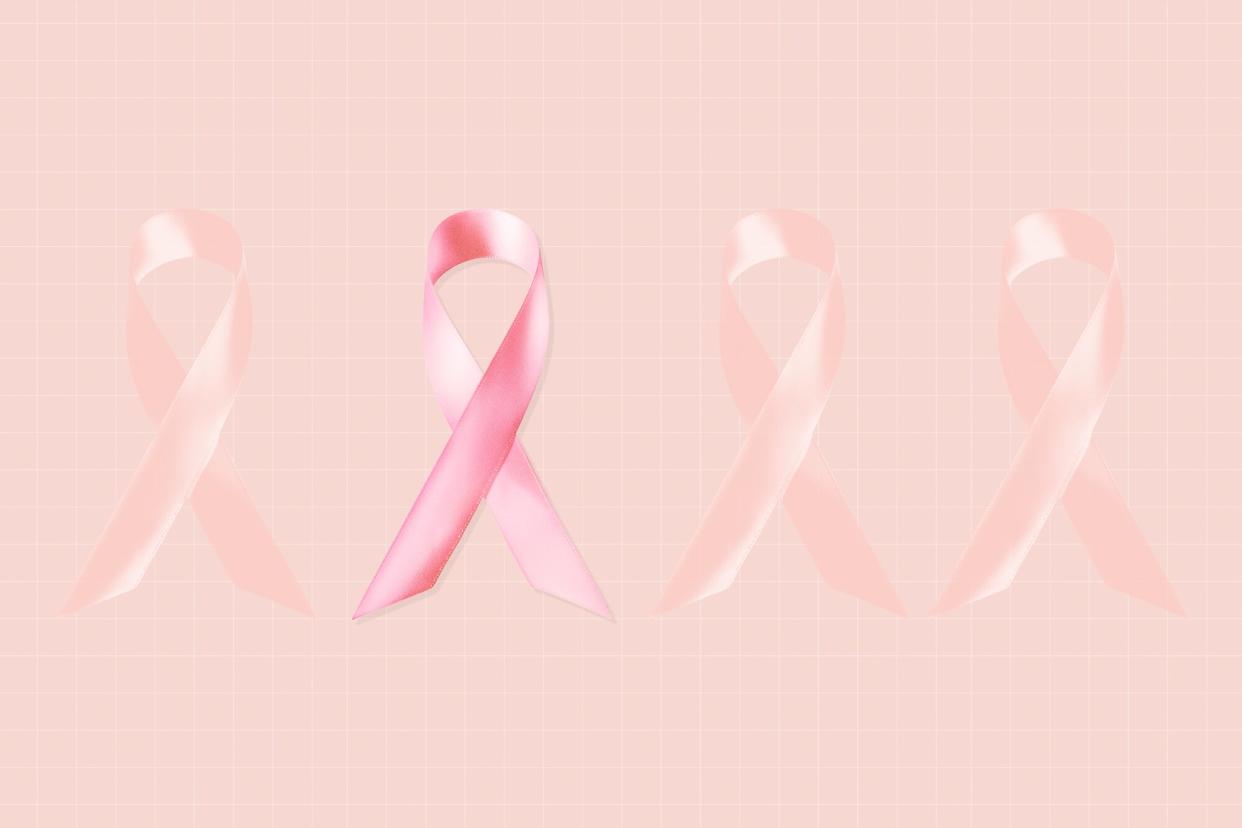4 Myths About Breast Cancer—Fact or Fiction

Getty Images / Burazin
Unfortunately, there is a lot that we don't know when it comes to breast cancer (or cancer in general). While your personal risk likely has something to do with genetics and environment, there are some lifestyle factors that can help or hurt, too. For example, cutting down on booze and making healthy food choices are great ways to naturally lower your risk. That said, there are a lot of myths and facts out there about the second most common cancer (after skin cancers) among American women. Here we dive into the science about four common myths related to breast cancer.
1. Eating lots of fruits and vegetables lowers your risk.
True. While pink has traditionally been the color associated with breast cancer awareness, when it comes to prevention, you should focus on eating the rainbow. A study of more than 182,000 women age 27 to 59 found that those who consumed more than 51/2 servings a day of fruits and vegetables had a significantly lower risk of breast cancer over the 30 years of follow-up compared to those who ate 21/2 servings or less daily. The link was especially strong for those noshing cruciferous vegetables (such as broccoli, cauliflower and cabbage) and orange and yellow produce (winter squash, melons and carrots). Both groups contain compounds—notably isothiocyanates in cruciferous veggies and indoles and carotenoids in orange/yellow produce—that are known to inhibit the growth of cancerous cells, even among high-risk individuals.
2. Active people are less likely to get breast cancer.
Mostly true. Regular, moderate exercise—the equivalent of around 3 hours of brisk walking a week—has been associated with a roughly 20% reduction in the risk of developing breast cancer. That includes those with a genetic or family history of the disease. Physical activity helps reduce inflammation, improves immune function and regulates hormones like insulin and estrogen, all factors that may stymie breast cancer growth. However, there's conflicting data about whether postmenopausal people get the most robust benefit or if younger people are more protected. Researchers also aren't sure exactly what type of exercise is best for breast cancer prevention.
3. Low-fat diets can lower your risk.
Not so much. There has been a lot of controversy over the role of dietary fat in cancer prevention, and overall health, for that matter. The old thinking was that eating a high-fat diet raised the risk of breast cancer—a belief that may have been spurred by observations of reduced breast cancer incidence in countries that favor low-fat diets, without accounting for other differences in eating habits and lifestyle, such as obesity rates. In reality, no large-scale studies have shown that to be the case. More importantly, when it comes to breast cancer, the type of fat you eat is what appears to matter most. While trans and saturated fats have largely been associated with an increased risk, healthy kinds including poly- and monounsaturated fats and particularly omega-3 fatty acids, have been shown to be protective. A 2018 study found that following a Mediterranean diet (a key feature of which are the healthy fats found in olive oil and fatty fish) lowers the likelihood of breast cancer by up to 18%.
4. Soy ups your breast cancer risk.
False. Soy's reputation as one of the original health foods was tainted when preliminary studies in rats linked it to higher rates of breast cancer. Researchers believed the results were due to isoflavones, compounds in soy that mimic the effects of estrogen. But this association has not proven true in human studies—in fact, newer research suggests that traditional soy foods like soy, tempeh, edamame and soymilk actually provide anti-cancer benefits. A 2020 meta-analysis found that for every 10 milligrams of soy isoflavones participants ate each day, breast cancer risk dropped by 3%. (For reference, a 3-ounce serving of tofu contains about 20 mg of isoflavones.) So there's no reason to fear soy foods!

